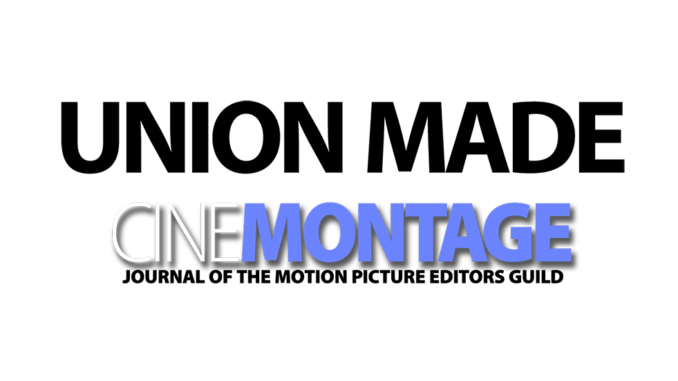
by Susan K. Merzbach
Remember MGM? No, not that one — the real one, spread out on two lots in Culver City, a place of film history, a place where the guard at the gate really was named Ken Hollywood. That’s where my film life began, a life which lasted some 45 years.
So what led me to film? It certainly wasn’t growing up in small-town New England. I had parents whose children could only see those films recommended by Parents magazine (it was a “no” for Calamity Jane because my immigrant mother thought cowboys meant killings). Early film going was limited to Bambi and the like — not influential. College didn’t help. I was a math major at Bucknell University but flunked out after two years since I much preferred playing bridge than going to classes or cracking a textbook. After that, I lived in Vienna for a year with a beloved aunt. The constant throughout? An addiction to reading, to stories.
My life in film really began after Vienna when my intelligent mother got me terribly drunk on a bottle of champagne and asked, “So vat do you rrrreally want to do vis your life?” I slurred, “Actress.” Ah, the veritas in the vino. The next step was the Pasadena Playhouse.
There, I took a course called Play Analysis. It was taught by Michael Peretzian, eventually a well- regarded literary agent at both William Morris and CAA. Naturally, the school went bankrupt after one year. Not my fault. But now I was conversant with structure, through-lines, emotional underpinnings, subtext and all other pretentious things.
Next came Hollywood street theatre. Find friends, find a store which has gone out of business, rent it for a month and put on a show. Every day meant building sets, sewing costumes, rehearsing and talking endlessly about films, plays and television. For nine of us, day jobs were at Bullocks department store, as accounting clerks, reciting soliloquies over our adding machines.
You never heard from the executive and only knew if you’d been effective once the film was in theatres. Then you could say, in hushed whispers to friends, “Oh, look, they did like my idea of adding the talking banana just as the heroine dies. Good for me.”
A friend saw that MGM needed a file clerk at its Hollywood record company, but I had to apply on the lot. Says the nice personnel lady, “Why don’t you work as a file clerk here at the studio, in the Story Department?” I said, “What’s a Story Department?” File clerk at MGM (a privilege!) meant spending time in the basement where in any of the myriad cabinets were letters from the likes of Louis B., or Thalberg or (not lying) piles of Marx Brothers scripts lying on the floor. Magic.
Here I discovered the animal called “story analyst.” These people were allowed to sit on their tuchuses all day to read. And some fool paid them to do this! I wanted this and, soon, after practicing on my own and showing my work to the story editor, a spot opened up. He consulted the union availability lists, found no one suitable, and I was hired.
And I was protected by the union, a benevolent big brother. For four years, I did the following: I read the book, script, treatment or outline; wrote a synopsis to re-tell the entire story in just two pages; and added a comment to answer the age-old question — should the studio buy this piece of…? If yes, why? If no, why not — but with tact. My friends called me a DiploRat. I could write scathing criticism, but with panache.
Much harder — if the studio had purchased a project, you now wrote a long, detailed synopsis and lengthy notes as to changes you’d like to see in the next draft. This was nothing the filmmakers ever saw. This was for the studio executive who would or would not incorporate your notes into the ones he/she gave the filmmakers. The unhappy part? You never heard from the executive and only knew if you’d been effective once the film was in theatres. Then you could say, in hushed whispers to friends, “Oh, look, they did like my idea of adding the talking banana just as the heroine dies. Good for me.”
Why do I love the union? After four years, I jumped ship to become a studio/production company executive myself, which lasted about 20 years. But then suddenly I was no longer in demand. I had continued to pay “inactive” union dues just for the sake of sentimentality and loyalty. I phoned the IATSE — what would it take to get back into the union? “Oh, but you never really left. I’ll just mark you as available.” Which landed me at Fox for the next 18 years — a very happy story analyst once again.
And now, again with grateful thanks to the union, I sit in blissful retirement (not working is heaven), my pension supplementing Social Security, and my health insurance needs all taken care of. My only regret is that I just ended that last sentence with a preposition.





